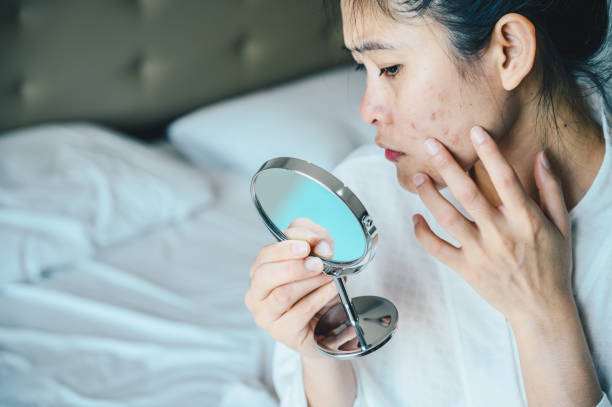Acne, though common, can be a significant source of distress for many individuals. It can affect people of all ages and skin types, often leading to feelings of self-consciousness and a desire to find effective treatments. With a plethora of products and procedures available, it can be challenging to determine the best acne treatments. However, by understanding the underlying causes of acne and exploring various treatment options, individuals can make informed decisions about managing their condition.
Understanding Acne
Acne is a skin condition that occurs when hair follicles become clogged with oil and dead skin cells. This blockage creates an environment where bacteria can thrive, leading to inflammation, redness, and the formation of pimples, blackheads, or whiteheads. Several factors can contribute to acne development, including hormonal changes, genetics, diet, stress, and certain medications. Buy Accutane Online to get acne-free skin permanently.
Over-the-counter (OTC) Treatments
For mild to moderate acne, many individuals find relief with over-the-counter (OTC) treatments. These products typically contain active ingredients such as benzoyl peroxide, salicylic acid, or sulfur, which work to unclog pores, reduce inflammation, and kill acne-causing bacteria.
-
Benzoyl Peroxide: This ingredient is effective at killing bacteria and reducing excess oil production. It is available in various strengths, from 2.5% to 10%, and can be found in cleansers, creams, and gels.
-
Salicylic Acid: Known for its exfoliating properties, salicylic acid helps unclog pores and prevent new acne lesions. It is commonly found in acne washes, spot treatments, and toners.
-
Sulfur: Sulfur has anti-inflammatory and antibacterial properties, making it a suitable option for treating acne. It is often included in masks, spot treatments, and cleansers.
OTC treatments are generally safe and accessible, making them a popular choice for those with mild acne. However, it may take several weeks of consistent use to see noticeable improvements.
Prescription Medications
For more severe cases of acne or when OTC treatments are ineffective, prescription medications may be necessary. Dermatologists can prescribe topical medications, oral medications, or a combination of both to target acne at its source.
-
Topical Retinoids: Retinoids, such as tretinoin, adapalene, and tazarotene, are derivatives of vitamin A that help unclog pores, reduce inflammation, and promote cell turnover. They are effective for treating acne, but they may cause dryness and irritation initially.
-
Oral Antibiotics: Antibiotics like doxycycline, minocycline, and erythromycin are prescribed to combat acne-causing bacteria and reduce inflammation. However, long-term use can lead to antibiotic resistance and other side effects.
-
Oral Contraceptives: For females with hormonal acne, certain birth control pills containing estrogen and progestin can regulate hormone levels and improve acne symptoms.
-
Isotretinoin (Accutane): Isotretinoin is a powerful oral medication reserved for severe, treatment-resistant acne. It reduces oil production, prevents clogged pores, and has long-lasting effects. However, it comes with potential side effects and requires close monitoring by a healthcare provider.
Professional Procedures
In addition to medications, several professional procedures can help improve acne and prevent scarring. These treatments are typically performed by dermatologists or skincare specialists and may include:
-
Chemical Peels: Chemical peels involve applying a solution to the skin to exfoliate the top layers, unclog pores, and improve overall skin texture. They can be beneficial for mild to moderate acne.
-
Microdermabrasion: This procedure uses a device to exfoliate the skin and remove dead cells, debris, and oil. It can help reduce acne lesions and improve skin tone and texture.
-
Laser Therapy: Laser treatments target acne-causing bacteria, reduce inflammation, and promote collagen production. They can be effective for various types of acne, including cystic acne and acne scars.
-
Extraction: Manual extraction of blackheads, whiteheads, and pimples by a skincare professional can prevent further inflammation and promote healing.
Lifestyle and Skincare Practices
In addition to medical treatments, adopting healthy lifestyle habits and skincare practices can play a crucial role in managing acne:
-
Cleanse Gently: Use a mild cleanser twice daily to remove dirt, oil, and impurities without stripping the skin’s natural moisture.
-
Moisturize: Choose a non-comedogenic moisturizer to keep the skin hydrated without clogging pores.
-
Avoid Harsh Products: Avoid using harsh scrubs or products containing alcohol, which can irritate the skin and worsen acne.
-
Protect Your Skin: Use sunscreen daily to protect your skin from UV damage, which can exacerbate acne and lead to hyperpigmentation.
-
Manage Stress: Practice stress-reducing techniques such as meditation, yoga, or deep breathing exercises, as stress can contribute to acne flare-ups.
-
Healthy Diet: Incorporate a balanced diet rich in fruits, vegetables, whole grains, and lean proteins, and limit dairy and high-glycemic foods, which may worsen acne for some individuals.
Individualized Approach
It’s essential to recognize that what works for one person may not work for another when it comes to acne treatments. Factors such as skin type, severity of acne, underlying health conditions, and personal preferences should be considered when determining the best course of action.
Consulting a dermatologist or healthcare provider is key to developing an individualized treatment plan tailored to your specific needs. They can assess your skin, recommend appropriate treatments, monitor your progress, and make adjustments as needed to achieve clear, healthy skin over time.
In conclusion, the best acne treatments encompass a combination of OTC products, prescription medications, professional procedures, and healthy lifestyle practices. By taking a comprehensive approach and seeking professional guidance, individuals can effectively manage acne and improve their skin’s appearance and overall well-being.

